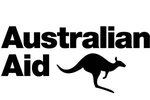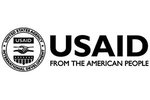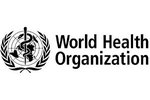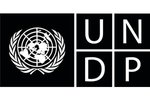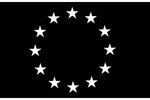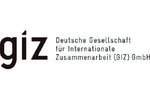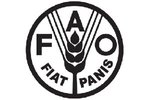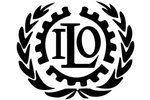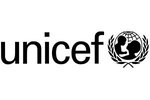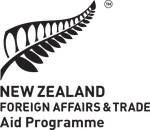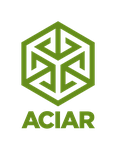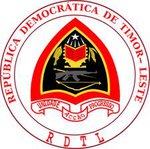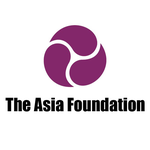From the womb to the world: Addressing health inequities before birth
How we’re working to improve in utero and infant health in Timor-Leste.
A child’s first 1000 days, roughly from conception to 2 years of age, is a critical period of life.
Studies show that inadequate nutrition in this window will threaten the foundations of a child’s health, growth and brain development in a permanent way.
One of the visible symptoms of malnutrition is stunting, a condition which has irreversible impacts on one’s health that last for life.
Malnutrition in the first 1,000 days of life is not only concerning for the long term health impacts on the individual, but also for the intergenerational impacts on human, social and economic development.
Malnutrition can begin during the pregnancy and breastfeeding stages, sowing the seeds of global health disparity in the earliest phases of life, well before personal agency or access to modern health services play their part. So health inequity starts in the womb.
Inequity in nutrition is caused by the way that people’s basic circumstances interact with their wider environments to determine how healthy they are. Inequality in nutrition is measured by the differences in outcomes among different populations, whereas inequities by definition exist where unequal outcomes are avoidable through human intervention.
From the very start of life one’s level of nutrition is affected by availability of food, especially healthy food, the economic position of their caregivers, and the education their caregivers receive about nutrition, among other things.
Multi-dimensional approaches to nutrition are required to improve these issues which are rooted deeply within communities and driven by complex social, cultural and political factors.
By working closely with governments, communities, and partner organisations, we hope to help improve adequate sustenance for mothers and their children, improving the lifelong health of individuals and generations to come.
Malnutrition in Timor-Leste
In Timor-Leste, 53 per cent of boys and 47 per cent of girls under 59 months of age are affected by stunting — making it one of only three countries where over half of children suffer from chronic malnutrition. Particularly problematic in Timor-Leste is an often notable drop in weight after the transition from breastfeeding to solid foods.
The impacts of COVID-19 have only worsened this health crisis, as border closures and limitations on movement have reduced availability of food in the island nation dependent on food imports.
With less produce available, and prices being driven higher, Timor-Leste is one of many countries across Asia and the Pacific where families and communities are finding it increasingly difficult to achieve healthy diets.
What can be done?
We now know that the immediate and underlying causes of malnutrition are complex.
An intricate interplay between multiple sectors — including water, sanitation, education, family planning, agriculture, dietary diversity, child feeding and social inclusion — impacts both access to, and active understanding of, adequate nutrition throughout life.
Many organisations within Timor-Leste are working to alleviate the impact of malnutrition, and in recent years we’ve been one of them.
In a multi-pronged approach, we have worked with the Timor-Leste Government to improve coordination between the many organisations who can make an impact, while also developing a nationwide engagement program connecting expectant mothers with reliable information and qualified health professionals.
Hamutuk: A multi-sector coordination approach
Hamutuk is a program using collaborative technologies to bring government and non-government organisations together in an effort to combat stunting in Timor-Leste.
Through collective action and alignment, Timor-Leste greatly increases its opportunities to make an impact on widespread nutritional outcomes.
The Hamutuk online platform was developed to support organisations to coordinate nutrition-specific activities across sectors, and enables aggregated reporting of program impact, and other data collection for Government monitoring and evaluation efforts.
Over time the platform will incorporate an information resource library, and be used by partner organisations to collect information directly from communities. This first-person data can then be used to develop tailored content, for example, information may be adapted to meet the latest nutrition priorities for localised regions.
The Hamutuk program is conducted in partnership with FONGTIL and Timor-Leste’s Ministry of Health with funding from DFAT.
Visit the Hamutuk website or read more about the Hamutuk program.
Liga Inan — An engagement and education approach
Liga Inan is a national health program designed to improve maternal and child health by increasing access to health professionals, services, and information.
Liga Inan brings key health messages into the homes of almost every pregnant woman in Timor-Leste, using SMS messages to encourage Timorese women to give birth with a qualified health attendant to reduce high maternal and infant mortality.
Since its inception, Liga Inan has become a trusted communication channel between women and health professionals. Surveying reported that 64% of women identified Liga Inan as their primary source of maternal health information; and 58% of women said it provided the best quality information on maternal and child health.
Initially focused on messaging through the early postpartum period, women in the capital Dili and one other pilot municipality are now receiving nutrition and health messages related to the pregnancy period as well.
As they approach the time in which they’d start complementary feeding, mothers now receive twice weekly health promotional SMS messages designed to raise awareness about adequate dietary intake, while nudging small behaviour changes around introducing healthy foods to their children.
Women registered with Liga Inan receive SMS messages with information about nutrition to support infant health…

“Breastfeeding women should eat a variety of foods such as: eggs, meat, fish, beans, fruit, vegetables of different colors. Not just plain rice. Drink lots of water and eat 3 meals and 2 snacks.”


“Your baby may be interested in your food now. Try cutting up some of your meal in small bites for her to try. She should be eating 3–4 meals a day plus breastfeeding.”


“Your baby is now able to eat food that he can hold in his hands, such as pieces of fruit. Wash his hands with soap before he eats.”

Liga Inan is conducted in partnership with Health Alliance International (HAI), Timor-Leste’s Ministry of Health, and USAID, and has received funding from Child Fund and DFAT.
Visit the Liga Inan website or read more about the Liga Inan program.
Thank you to Australian Aid for supporting both the Hamutuk and Liga Inan programs.
Timor-Leste is making important progress in meeting the UN’s Sustainable Development Goal (SDG) targets related to health by 2030. The country has been consistently reducing its maternal and child mortality rates and is notably on track to eliminate malaria. Progress has been made in reducing stunting in children, though numbers remain extremely high.
There is wide variance in stunting rates as well as rates of skilled attendance at birth and antenatal care coverage in Timor-Leste based on factors like income, geography, and education.
Smart uses of tech can play a role in reducing this early-life health inequity, through programs like Hamutuk and Liga Inan. To learn about other ways which we use tech to create social impact in Timor-Leste and elsewhere, head over to our Projects page.
To learn more about Catalpa, head on over to our website or follow us on Facebook, LinkedIn and Twitter.
